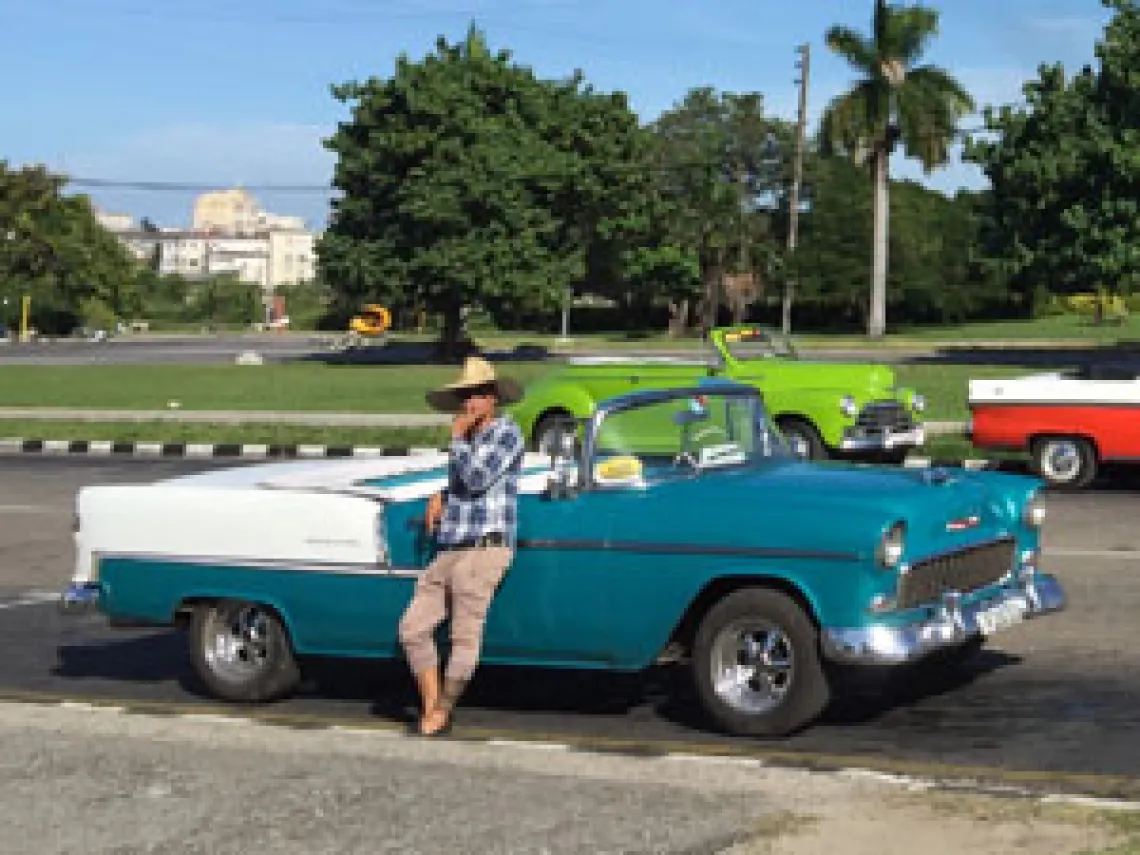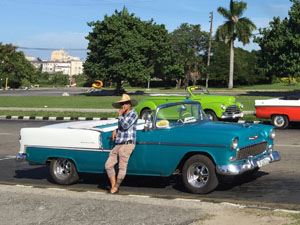UA selected by the IAPP in Cuba

The University of Arizona (UA) was selected as one of 12 universities by the International Academic Partnerships Program (IAPP) in Cuba to establish mutually beneficial academic and research programs of interest to Cuba.
The IAPP is an initiative of the Institute of International Education (IIE) Center for International Partnerships in Higher Education. Its aim is to increase the number of international partnerships between higher education institutions in the U.S. and other countries.
The UA is honored to be involved in this selective program with Cuba, according to Justine Schluntz, Program Manager in the Office of Global Initiatives.
The IAPP process will lead to a deeper understanding of Cuban priorities and enable the UA to build the relationships necessary to help further the goal to establish mutually beneficial academic and research programs related to Cuba in areas of global importance.
Cuba is in a critical location and time, and an important player in the Caribbean and Latin America as a whole. Cuba’s unique geography and culture, coupled with its excellence in areas of global interest, such as public health and urban agriculture, will deeply influence the collaborative culture and mutually beneficial relationships between institutions.
The UA hopes to leverage the IAPP process to further strategic engagement by helping identify key partnerships to increase bilateral collaboration and mobility.
Mike Proctor, vice president of UA Office of Global Initiatives (OGI), and Harmony DeFazio, the director of study abroad and student exchange for OGI, recently participated in a Cuba study tour with IIE Cuba Advisory Board as well as representatives from the other eleven universities selected to participate in the process.
During this tour, Proctor and DeFazio visited a number of Cuban universities, met with Aurora Fernandez Gonzalez, vice ministry of higher education at MES (Ministerio de Educación Superior de la República de Cuba), and visited the residences of the United States Ambassador and the European Union Ambassador.
The OGI at UA has established a Cuba steering committee consisting of 5 members, including David Armstrong (Professor of Surgery), Boris Kozolchyk (Professor of Law, born in Cuba), Dereka Rushbrook (Associate Professor, School of Geography and Development), Marcela Vasquez (Associate Professor, Anthropology) and Celeste Gonzalez de Bustamante (associate Professor, Journalism).
The Southern Arizona Limb Salvage Alliance (SALSA), at the UA-affiliated University Medical Center, is actively participating in research, education, and outreach with the Center for Biotechnology and Genetic Engineering (CIGB) in Havana.
In addition, UA faculty has led a for-credit summer study abroad program in Cuba for the last three years. Students in this interdisciplinary program attend site visits and engage in lectures by both UA and Cuban university faculty.
Cuba’s history, political economy, agriculture, and environmental, political, and socioeconomic transformations are examined, and students in the program attain upper-division or graduate credit hours (as appropriate) in Latin American Studies and/or Geography.
The UA aims to further strengthen collaborative research as well as campus internationalization and awareness through future partnerships with Cuban institutions and hopes to leverage the IAPP process to further our strategic engagement by helping identify key partnerships to increase bilateral collaboration and mobility.
The UA also plans to identify and develop two or three comprehensive, multi-institutional relationships in public health, biological and agricultural sciences, engineering, and/or environmental sciences.

